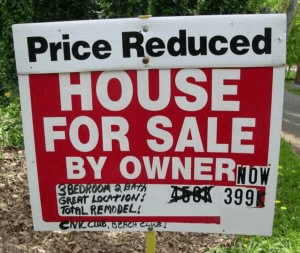Take a look at a new study from Zillow on home valuation differences among ethnic groups in major cities. Zillow’s press release is here and the full study is here. The study compares typical values for each ethnic group in each city to typical values overall in that city.
The home-value gap for blacks is particularly big for Chicago — 37% — which is higher than the ten other largest cities in America and well above the national average gap of 16%. For Hispanics, the gap in Chicago is 16% and the national average is 10%. For Asians, the gap is actually bit positive in Chicago — 10% — as seen in the full study.
“Home value inequality varies greatly by state and metropolitan area,” says Zillow. “Some areas are mostly equal, while others have huge differences across races. Large metros with the smallest spread between Black-owned home values and overall home values are Riverside (1 cent less on the dollar), San Antonio (3 cents), Las Vegas (3 cents), and Portland (4 cents).”
The causes and consequences of these gaps are no doubt highly debatable, but according to Zillow,
The housing bubble and bust hit communities of color relatively hard, often because predatory loans were targeted and designed to take advantage of the most vulnerable communities. The ensuing wave of foreclosures hurt both Black/Latinx homeownership and home values disproportionately, and growth in these communities was relatively slow for years even after the nation as a whole began to recover.
 One might also interpret the gaps to raise the question of whether we are really doing anybody a favor with myriad government programs that encourage and subsidize home ownership.
One might also interpret the gaps to raise the question of whether we are really doing anybody a favor with myriad government programs that encourage and subsidize home ownership.
Lower values mean less potential appreciation. It depends on where you live, but most Illinoisans, no matter what their color, are lucky if investment in their homes has been dead money over the last few decades. While the recent recovery in home prices outside of big cities has helped, massive losses in home equity have been the longer term rule in Illinois.
-Mark Glennon

 Hopefully, all media will get the message, in Illinois, too.
Hopefully, all media will get the message, in Illinois, too. Ted joined Tom Miller of WJPF to talk about Illinois’ highest-in-the-nation property taxes, why lawmakers don’t want to touch the tax’s cost drivers, just how much Illinoisans’ tax burden has grown over the decades, why Gov. Pritzker failed to meet his promise to reform property taxes, and more.
Ted joined Tom Miller of WJPF to talk about Illinois’ highest-in-the-nation property taxes, why lawmakers don’t want to touch the tax’s cost drivers, just how much Illinoisans’ tax burden has grown over the decades, why Gov. Pritzker failed to meet his promise to reform property taxes, and more.
 Ted joined Dan and Amy to talk about the free speech controversy brewing in Wilmette due to the city’s refusal to fly a religious freedom flag, the city’s left-wing excesses and the growing culture war, the latest money spent on the illegal immigrant crisis, and more.
Ted joined Dan and Amy to talk about the free speech controversy brewing in Wilmette due to the city’s refusal to fly a religious freedom flag, the city’s left-wing excesses and the growing culture war, the latest money spent on the illegal immigrant crisis, and more.
Zillow is a realtor, realtors have strict speech restrictions. But the average Joe who takes care of his place, spends weekends at home depot knows very well that a community of prideful owners increases property values. Homes don’t maintain themselves. If your neighborhood went to $h!t chances are it’s not due to the loan systems.
There is a simple reason: verifiable (inverse) correlation between home values and property tax rates. This is called “tax rate capitalization “, and refers to the fact that all over America (other than Illinois), mandatory social services are provided at costs which are within the means of the community taxed to pay for those costs. When the annual percentage rate cost of owning a home in America is 1%-4% higher in Illinois than everywhere else in America (because annualpropertytax rates in Illinoisare 1%-4% higher in Illinoisthan in America), home values in Illinois “capitalize” that additional cost as negative equity value… Read more »
Property taxes are a lot more than 1-4% higher in Illinois. You need to correct that error because property taxes are often more than 100% higher. If you want to see this clearly, just pick any lake property in Northern Il and compare it to Southern WI. A $1,500,000 WI lake home has the same property taxes as a $500,000 IL home of same size, land and quality.
I meant as a nominal amount differential measurement.
But your characterization is more lucid than the way I put it.
In America, property tax rate mean and median is about 1%. In Chicago, the rate is around 2% (100% higher). In Collar counties it ranges 3%-4% (which is 200%-300% higher).
In Harvey and busted out regions which were stripmined by crony socialist local governments, property tax rates are ~7%.
As messed up as you’d think California is, it’s been great. A formula based on property purchase at 1.19%. Then a limit on increases. Moved to an area where they are building homes which keeps the pressure off politicians trying to raise more taxes. Yes, home price is high but if you can afford it at least it is controlled. Always felt like in IL that your taxes had no limit. And thank god we moved have played golf almost every week this winter…
The three most important aspects of buying or selling a home….location,location,location,zillow forgot to mention that a lot of minority houses are in less than desireable locations,but that wouldnt be politically correct huh zillow!?
What is the cause and what is the effect?
Are minorities unfortunately in less than desirable locations or are they less than desirable locations because minorities make them less than desirable?
They are less desirable locations, with small and older housing stock, lack of amenities, far more rentals and fewer owners, far from public transportation, often more industrial, or hollowed out. That’s why they are cheap and they attract lower income minorities. Non-minorities live in places like this too, they are called trailer parks, next to a major highways or factories, or airport, on tiny cramped rental lots, with lower class amenities nearby.
You are not wrong.
But minorities often live in places that were once desirable and now are not desirable. Like the south suburbs or Peoria.
So who made them not desirable now?
Actually, as a former Peorian, I must say Peoria has numerous middle class and upper class areas, in addition to depressed areas.
My daughter lives there now and much of the city is a disaster.
The very outskirts are ok, as are some of the suburbs.
When I was growing up greater Peoria was not nearly so violent and blighted. The demographics were much different then.
If I answered your question truthfully it would get censored.
It seems impossible to answer your question. It is certainly impossible to say or to write that answer — here or elsewhere. Each reader has his own answer but it’s not likely based on any evidence. The same is true of most valuations made by “the market.” That “market” reflects decisions by lots of people and those decisions involve logical and illogical beliefs. It is what it is and that’s its virtue. Buyers and sellers are not (yet) obliged to reveal the bases of their actions. And if they were, how would anybody know if they were being truthful? A… Read more »
No mention that gang violence may depress home values in the neighborhood? It’s all about predatory loans? Zillow is “reimagining” real estate? That awful word again- code for “we are members of the woke brotherhood”.
It’s worse than that. Zillow suggests that affordable housing for minorities is a BAD thing. Zillow would rather have BIPOC borrow ungodly sums of money that they can’t afford to repay to drive up home prices to make home prices as or more expensive than White/Asian neighborhoods.
Because remember, Zillow buys and sells aka flips houses. So Zillow is did a woke study to get woke points, when in reality, it’s just trying to drive up the value of its own housing portfolio.
Insidiously evil.
Wasn’t this tried in the late 90’s and early 2000’s? When the dust settled it was called predatory lending. Obamas Acorn was all over it.